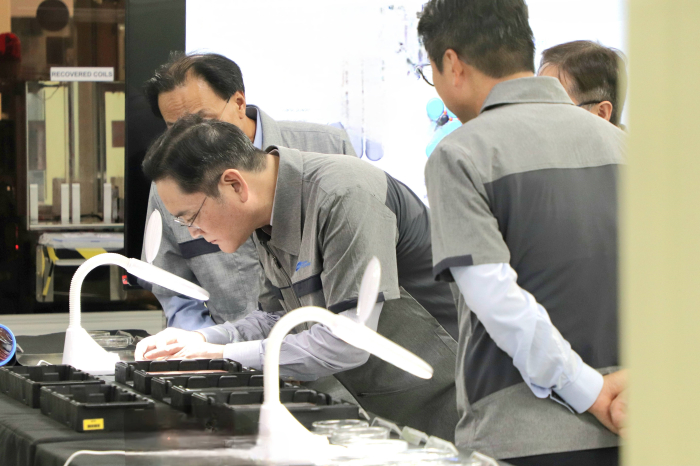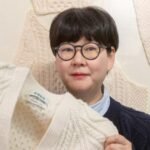
Samsung Electro-Mechanics Co. is supplying several million dollars’ worth of multilayer ceramic capacitors (MLCCs) to BYD Co. and Chinese automotive electronics manufacturers, according to industry sources on Wednesday.
BYD is the world’s largest electric vehicle maker, having overtaken long-time leader Tesla Inc.
The supply underscores Samsung’s push into the automotive electronics market, including cameras lenses and semiconductor package substrates for autonomous driving. It has focused on expanding its customer base with a focus on EVs.
MLCCs act as dams that charge and discharge certain amounts of electricity to control flow. They are critical to the stable operation of electrical and electronic circuits used in EVs and self-driving cars, as well as in smartphones and the Internet of Things (IoT).
About half of Samsung Electro-Mechanics’ revenue comes from MLCCs, with automotive MLCCs generating higher margins than other types.
Cars are equipped with significantly more MLCCs than other electronic devices. Every vehicle contains between 3,000-10,000 MLCCs for driving assistance, autonomous driving and infotainment systems, as well as for power transmission.
With the shift toward electrification, the number of MLCCs installed in a car has soared to between 12,000 and 18,000 units.

At a shareholder meeting last year, Chang Duckhyun, chief executive of Samsung Electro-Mechanics, said the company has transformed into an automotive parts maker and secured more than 50 additional customers in the automotive electronics sector.
Last month, Jay Y. Lee, chairman of Samsung Electronics Co., visited BYD headquarters to meet with its Chairman Wang Chuanfu, following his tour of Xiaomi’s factory in China.
Xiaomi is a Chinese manufacturer of smartphones and household electronics goods. During his visit to its factory, Lee, the de facto leader of Samsung Group, was speculated to have discussed collaboration in the automotive electronics sector.
In 2024, Samsung Electro-Mechanics’ operating profit rose 11% to 735.0 billion won ($515 million) from a year before, with sales up 16% to 10.29 trillion won.
Its share price advanced 2.1% to 122,100 won in morning trade, versus a 0.6% dip in the Kospi index.
By Yeonhee Kim
yhkim@hankyung.com
Jennifer Nicholson-Breen edited this article.















